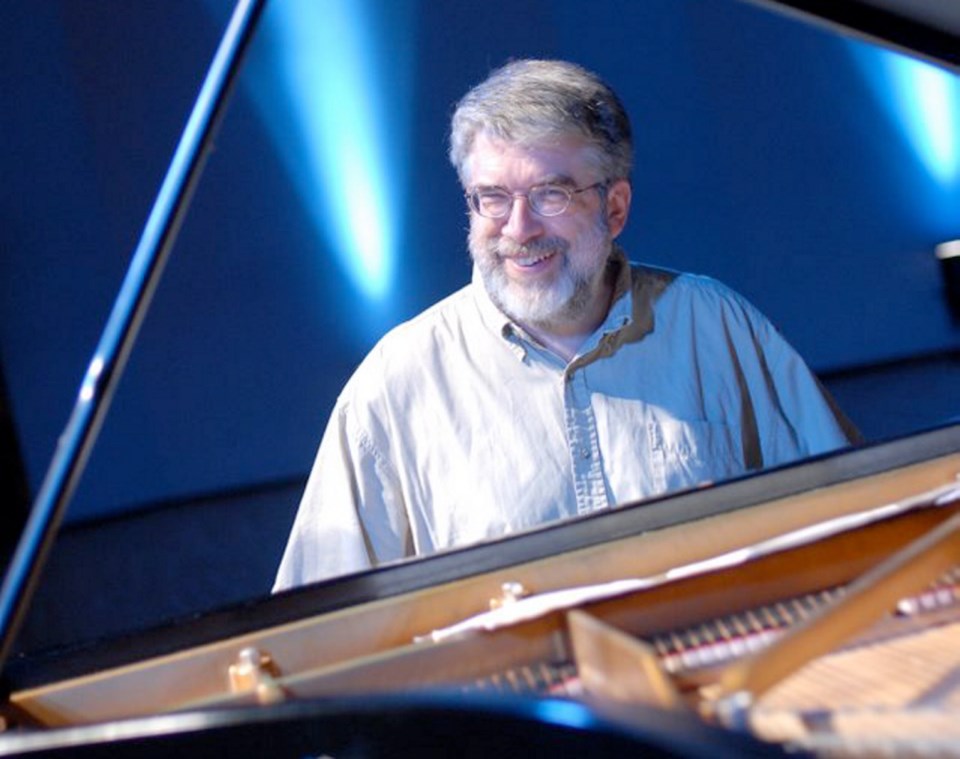What: Bruce Vogt, piano: Hurling a Lance into the Future — The Spiritual Vision of Franz Liszt.
When/where: Saturday, 8 p.m., Phillip T. Young Recital Hall (School of Music, MacLaurin Building, University of Victoria); online at livestream.com/somlive.
Tickets: $25, seniors $20, students and alumni $10. Call 250-721-8480; online at tickets.uvic.ca; in person at the UVic Ticket Centre.
and
What: Victoria Philharmonic Choir: Bach’s B-minor Mass.
When/where: Saturday, 7:30 p.m., First Metropolitan United Church (932 Balmoral Rd., at Quadra St.).
Tickets: $35, students $20, under 13 free. Online at vpchoir.ca; in person at Ivy’s Bookshop, Munro’s Books and Tanner’s Books.
On Saturday, pianist Bruce Vogt will offer a substantial, thoughtfully selected program devoted to music by Liszt.
As both performer and scholar, Vogt has had a special interest in Liszt since 1980, the year he began teaching in the University of Victoria’s School of Music. (He is currently a professor, and has been head of the piano department since 1991.) Liszt’s music, he has said, liberated him as a pianist, and Liszt remains the composer with whom he is most closely associated.
In recent years, Vogt’s solo recitals at UVic have ranged widely — Haydn, Mozart, Beethoven, Schubert, Debussy — though he has not given an all-Liszt recital there since 2011, when, to celebrate the bicentenary of the composer’s birth, he gave a series of three concerts that explored the whole range of Liszt’s piano music.
Last July, at the Victoria Conservatory of Music’s summer piano academy, Vogt taught a Liszt course and gave an ambitious, wide-ranging recital that amounted to a musical portrait of Liszt, comprising works spanning more than 40 years.
He will play some of the same pieces on Saturday, though he has rejigged the program to emphasize what he calls Liszt’s “spiritual vision” — the aspect of Liszt’s temperament most often neglected or dismissed.
The program still ranges widely, however: It includes virtuosic works from Liszt’s time as a touring concert pianist in the 1840s, as well as some of the strange, experimental, deeply private, forward-looking works of his last years, among them the Bagatelle Without Tonality, composed in 1885, the year before his death.
The two biggest and musically richest works on the program, both from Liszt’s middle years, are explicitly religious: St. Francis of Assisi: The Sermon to the Birds, one of his Two Legends; and Blessing of God in Solitude, from his collection Harmonies poétiques et religieuses.
But there is also music about love: a piece inspired by a Petrarch sonnet, an arrangement of a Schumann song, one of the Transcendental Études. There is the showy Hungarian Rhapsody No. 13 as well as more austere selections from the late collection Historical Hungarian Portraits.
And there are other late works including an elegy, a threnody, a “forgotten waltz” and a nocturne bearing the odd title Sleepless! Question and Answer.
This program, in short, neatly introduces one of the most passionate, individual and questing musical minds of the 19th century, and can serve as a welcome corrective for those unfortunates who think Liszt is all banging and bluster.
Since it was founded, in 2005, the Victoria Philharmonic Choir has given considerable attention to Bach. It has programmed both of his Passions, the Magnificat, two cantatas and the B-minor Mass, which it performed twice in 2012, here and in Vancouver.
On Saturday, the VPC will return to the B-minor Mass, and there’s really no need to ask why. A few years ago, I asked the director of another local choir, who was programming the Mass for the third time, why he was doing so, and his reply could be summarized as “Duh.”
Exactly.
This profound monument of the choral repertoire needs no special excuse. It is forbidding, yes, but choirs want to perform it. They look longingly at it the way mountain climbers gaze at Everest.
Completing the Mass, in 1749, was Bach’s last major creative project, and he viewed it as his musical testament. It is an encyclopedic work, enfolding many different kinds of music, and it is long, dense and complex enough to challenge even professional performers, technically and interpretively. (That’s why you never see a Sing-Along B-minor Mass.)
On Saturday, the 80-voice choir, led by its music director, Peter Butterfield, will be joined by three accomplished local soloists — soprano Anne Grimm, mezzo-soprano Sarah Fryer and tenor Benjamin Butterfield — and Montreal-based baritone Nathaniel Watson. (The same four appeared in the 2012 performances of the Mass.)
Among the 23-piece orchestra will be some period-instrument specialists, including flutist Soile Stratkauskas, founder of the Victoria Baroque Players. Indeed, Peter Butterfield’s own mentor was a leading early-music specialist, conductor John Eliot Gardiner, for whom he sang as the tenor soloist in the B-minor Mass.

.png;w=120;h=80;mode=crop)

